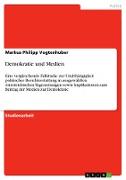Images, Power, and Politics
BücherAngebote / Angebote:
The Assyrians have usually been charcterized as the strongmen of the ancient Near East, controlling their empire largely through military force, terror, and intimidatin. The new interpretation of Esarhaddon's reign offered here, hwever, suggests that his success in dealing with conquered Babylonia lay in his masterful use of non-violent tools of government: public works programs, royal public appearnces, and especially the use of documents which presented different images of the king and his policies to different national audiences. Traces of these techniques in the policies of earlier Assyrian kings suggest that the Assyrians had long used such techniques, as well as terror, to control their empire. This study also prposes some new approaches to reading Assyrian royal inscriptions. It suggests, for example, that Assyrian building documents, although often buried in foundaitons, wer first read to contemporary audiences and were primarily designed for them. An analysis of subtle differences in Esarhaddon's Babylon inscriptions suggests that variants may be clues to the identificaiton of different intended audiences for texts which were once thought of as duplicates. This book combines documentary and archeological evidence to propose a new interpretation of Esarhaddon's reign based onc lose reading of texts. it also proposes a new, more complex model of the techniques by which Assyria succeeded in governing her empire.
Folgt in ca. 15 Arbeitstagen




